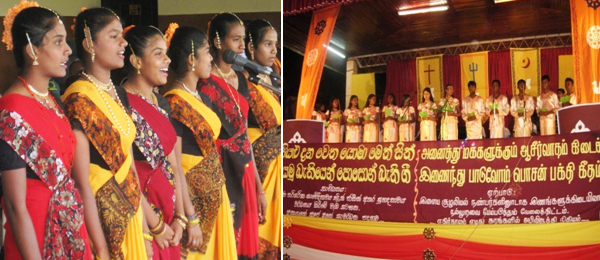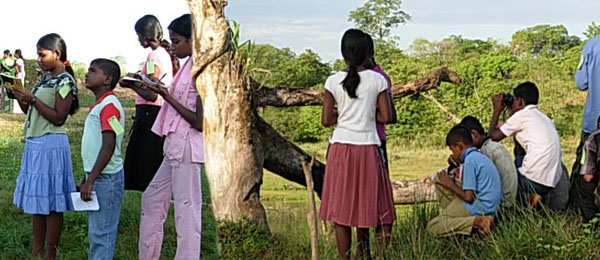| Activities | Outputs |
Moblising of environment cadets -
mobilised
and youth members engaged in the activities.
The youth clubs formed in the regions
conducted catchment area conservation
programmes and many other activities.
Target: 5000 youths mobilised
|
6550 youth were engaged in 104 youth clubs. |
Conservation and maintenance of water
catchments –
The aim was to restore
degraded water catchments to its original
conditions of bio-diversity which will eventually
ensure its service as a watershed. Selected
catchment areas were restored with native and
useful plant species that suit the catchment
area. Special action was taken to aware the
community and to avoiding damages including
the placement of sign boards.
Target: Conservation of 50 catchment areas |
53 catchment areas in 7 Divisional Secretariat
divisions were conserved.
Mahiyanganaya - 05
Welimada - 06
Badalkumbura - 10
Monaragala - 10
Plantation Sector - 09
Maha-Oya - 08
Dehiattakanadiya - 05 |
Formation of environment cadet clubs –
The youth in these clubs were engaged in
catchment area conservation, various trainings
(language training, vocational training etc)
activities as well as sports, literary work etc.
These clubs are able to function after the
project is concluded.
|
136 clubs were formed |
Establishment of organic home gardens –
Youth were trained in organic gardening as a
mean for obtaining organic and toxic free food
for their consumption and as a mean of
additional income. |
958 organic gardens were established. |
Language Classes –
Sinhala youth were able to learn Tamil language and Tamil youth were able to learn Sinhala language under this
activity. This created an opportunity to them to communicate each other. |
2527 youths received language learning. |
Assistance for Vocational trainings –
Youth
who required vocational trainings were provided
with following trainings; carpentry, dress
making, aluminium fabrication, leather products |
271 received vocational training |
TOT for selected youths –
Training of Trainers
was provided for selected youths |
31 received TOT training |
Networking:
Youth clubs were grouped as
clusters and and these were grouped at District level. Development of leadership qualities and other skills were among the objectives of the programme. |
- |
Training provided on environment and
ethnic harmony (50 four-day trainings) –
Awareness and training on various aspects of
environment was provided and ethnic harmony
was promoted during these trainings. Members
of the youth clubs of various ethnic groups
participated in these trainings.
|
676 participated in trainings. |
Establishment of Drama teams –
These
teams were trained to mobilise and carry the
message to the general public through a more
attractive way |
9 teams were established |
Conduct leadership camps / trainings –
Leadership training was among the key issues
related to the youth mobilising. These trainings
were to facilitate leadership training.
|
12 camps were held and 430 were trained. |
Educational assistance provided (GCE O/L
exam) –
Educational assistance was provided
for youth who were to face the GCE (Ordinary
Level) examination held by the Government.
|
- |













